With the fifth consecutive rainy season failing and livestock dying daily, more and more Borana people are moving into internally displaced people (IDP) camps in southern Ethiopia. But existing issues in the camps – such as gender-based violence (GBV) – carry their own set of risks for an already vulnerable population.
Close to 150,000 people have already moved into the 20 IDP camps. More than 867,000 people are expected to arrive in the next month and are seeking immediate food assistance.
“It is painful and I feel ashamed for someone like me to beg for help and be so dependent,” said Namo Halakhe, a 40-year-old herder and widowed mother of eight. “I lost 50 cows and 60 goats before I decided to come here.” Like many others from kebeles (small administrative units) across the Borana Zone, she made her way to the IDP camp as a last resort after losing almost everything.
The climate crisis has exacerbated extreme weather events across the vulnerable Horn of Africa region. While heavy rainfalls and floods have hit the capital, Addis Ababa, and neighboring Sudan, the region further east is experiencing the worst drought in forty years. Approximately 22 million people are affected across the region, according to the latest OCHA report.
The Borana Zone in southern Ethiopia has received little to no rain for the past three years. “We have two rainy seasons per year, with most of them failing. Some areas haven’t seen any rain at all. Others have had a week of rain instead of the regular two months per rainy season,” said Namo.
A sixth below-average rainy season is forecasted for March to May 2023 by the Famine Early Warning Systems Network.
“There have always been droughts; we know how to adapt,” said Namo. “But this one is not ending. We are now fearing for our own lives after losing everything. When the drought was getting worse and worse last year, I started to sell one goat per week to buy fodder for my cattle. Eventually, I sold all the goats and all my cattle died.”
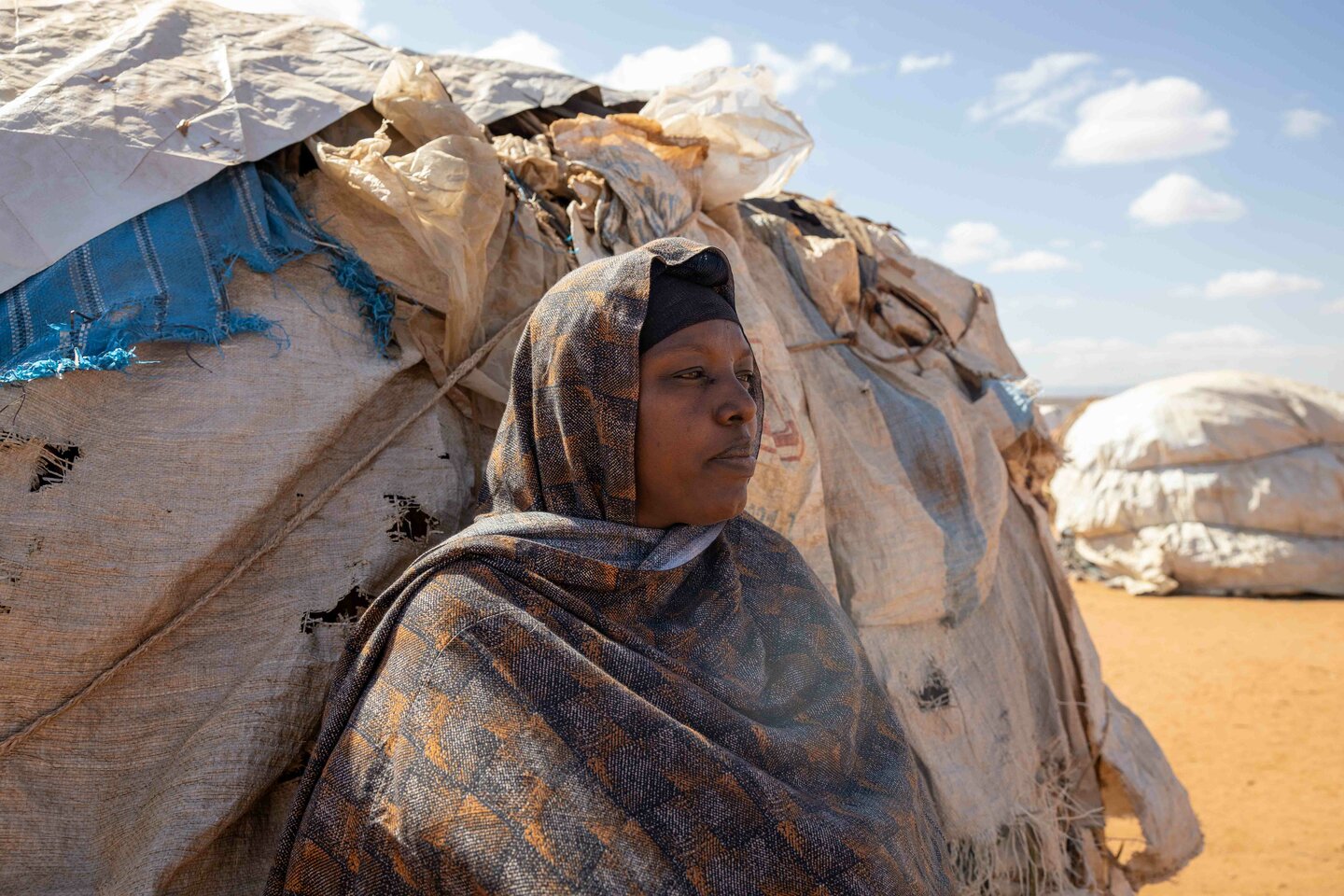
The old Borana
The Borana Zone is part of a larger region between Kenya, Somalia and Ethiopia that was traditionally inhabited by pastoralists. The Borana people, or “the free or kind people” are a centuries-old pastoralist community that roam these lands in southern Ethiopia and northern Kenya. Their political and age-grading systems have been in place for over 500 years, and, like in many pastoralist societies, the wealth of the Borana used to be measured in cattle. One family could have up to 500 animals and moved with their cattle to find green pastures during the dry season. Helping each other with restocking herds in times of drought is a fixed custom of Borana culture. But now the large herds and Borana way of life are having to adapt to an ever-dryer climate in the region.
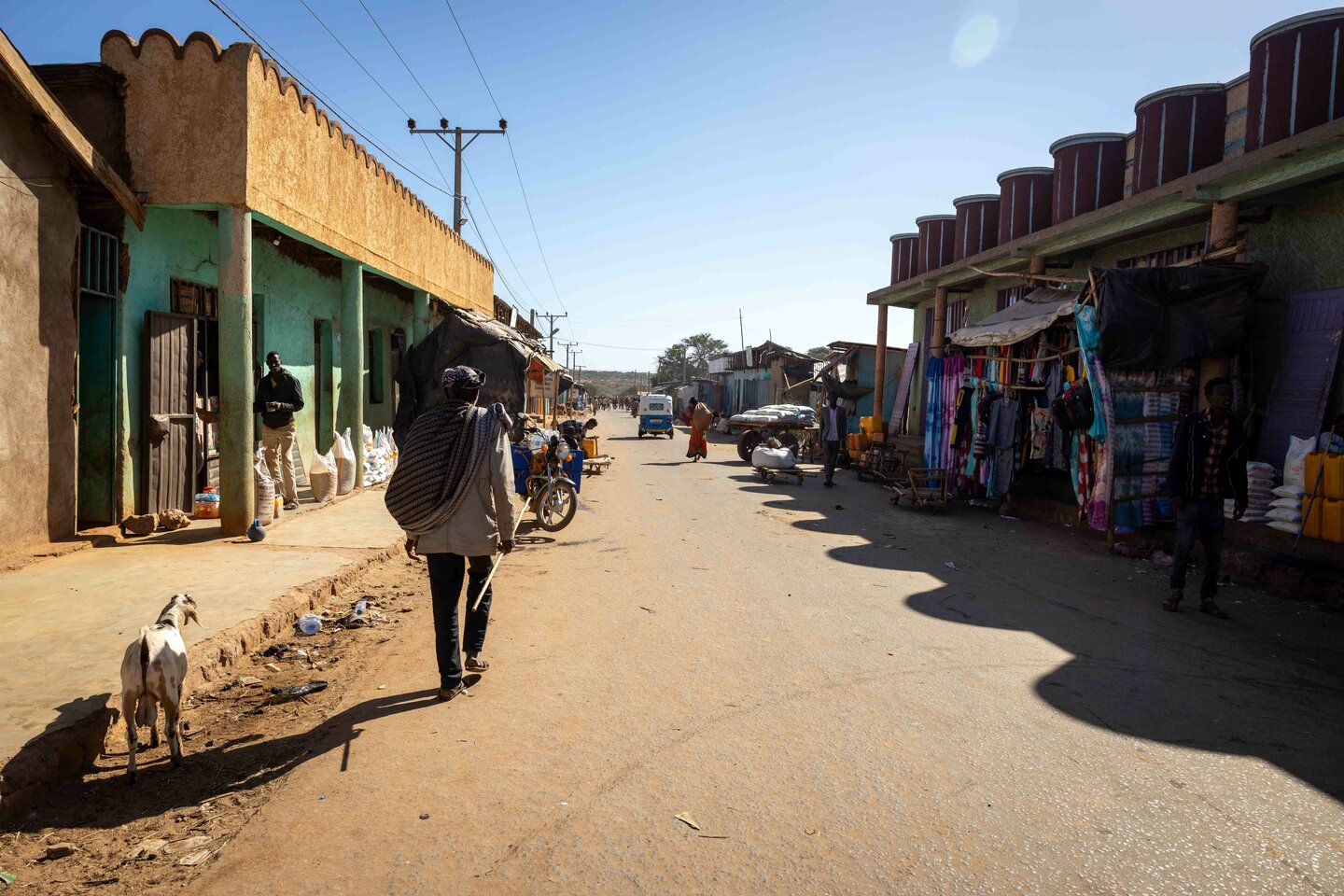
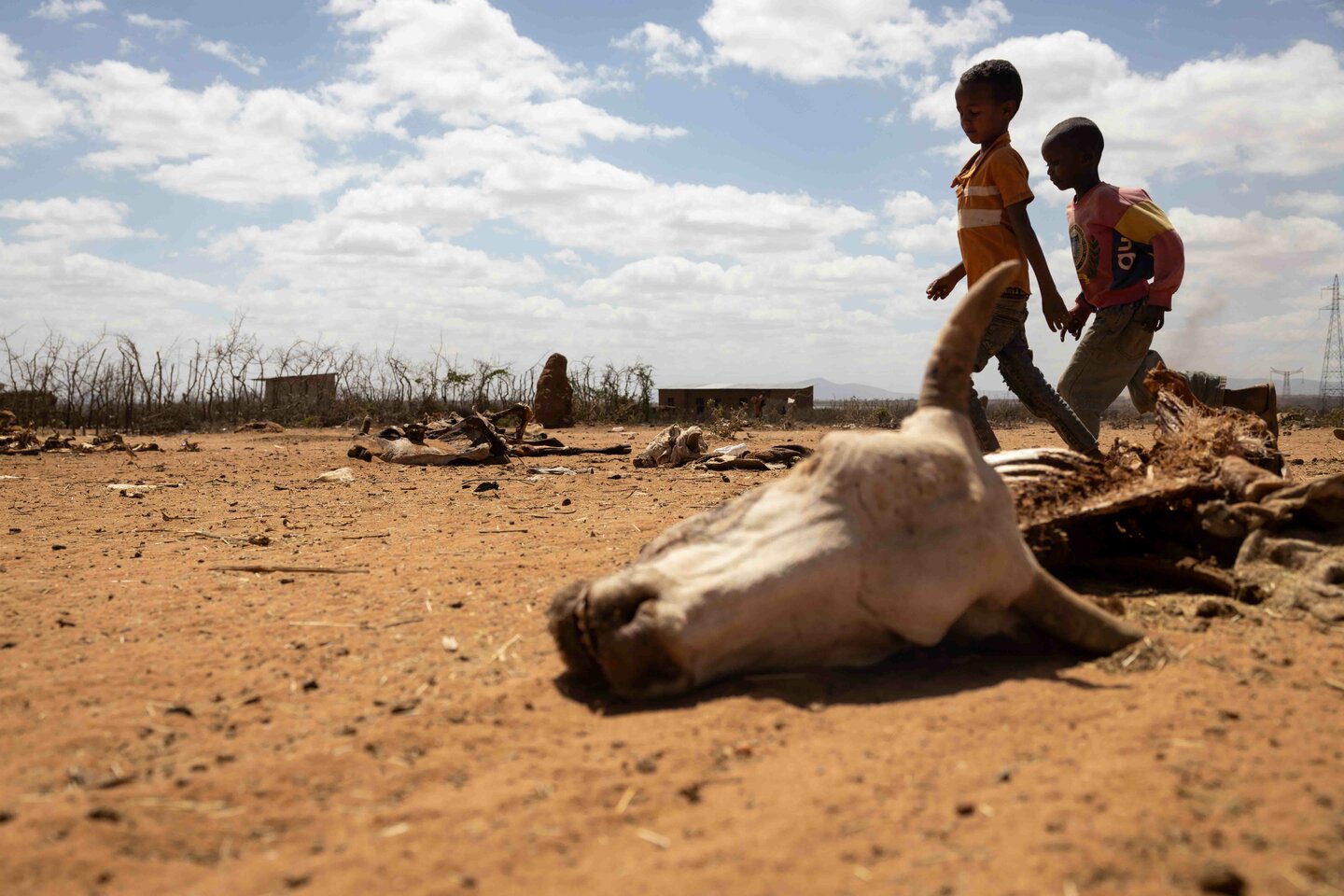
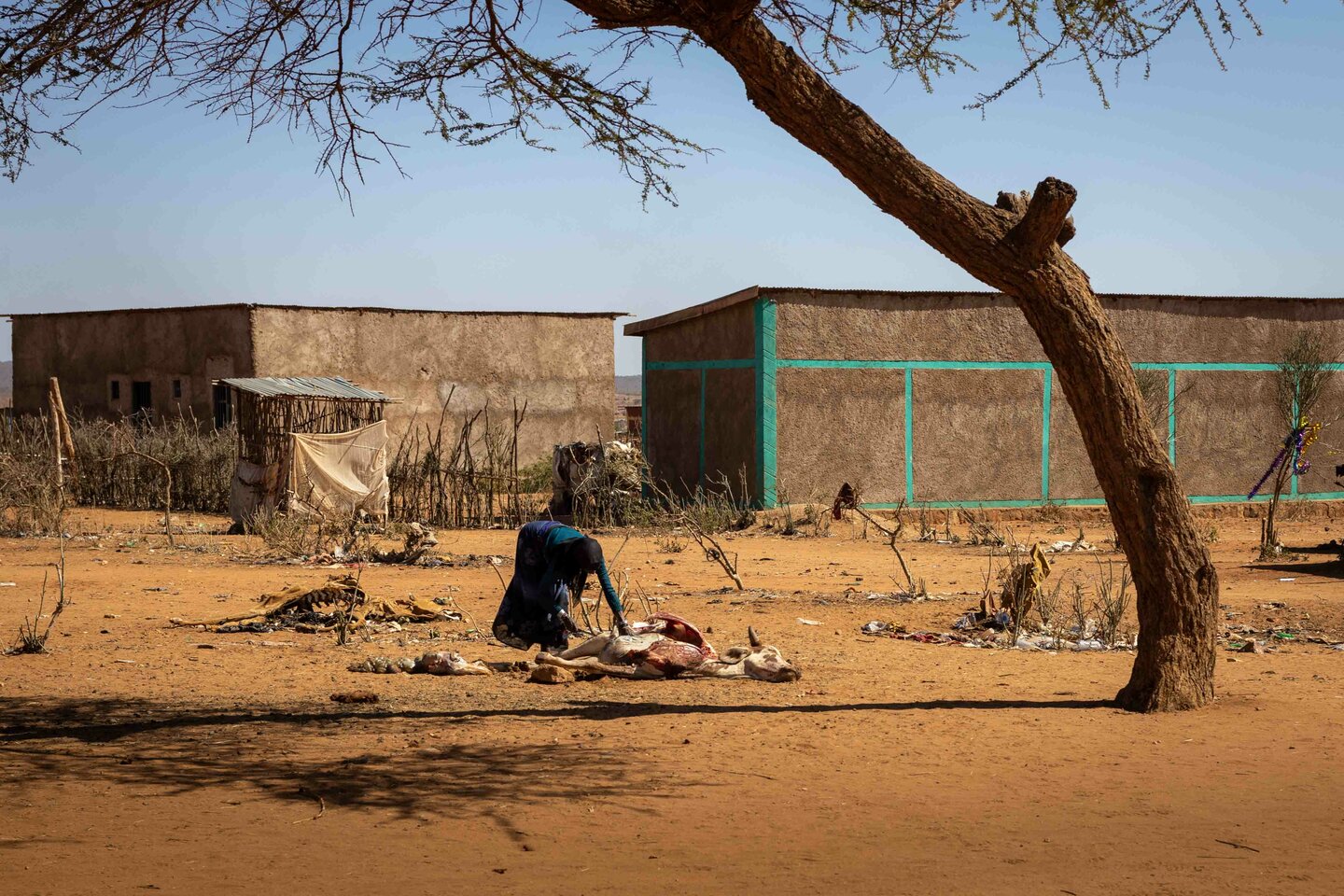
Dubluk IDP camp
The stalls at the cattle market in the small roadside town of Dubluk are almost empty, and a putrid smell permeates the air. There are as many carcasses of cattle who collapsed after their journey as there are livestock to look at. A stone's throw away from the cattle market are huts from the Dubluk IDP camp.
Dubluk is the largest of the 20 official IDP camps in the Borana Zone. The extreme drought has forced many of the Borana to move here. Numerous smaller congregations of refuge huts can be found along the roads to traditional water wells outside of Dubluk.
In December 2022, the camp was home to almost 10,000 people, with new makeshift huts being constructed each day.
“We meet every Monday with the camp task force to discuss with the other responding organizations and the government what we are doing and plan upcoming activities,” said Monica Jilo, Helvetas’ Gender Officer in Borana.
“The livestock are mostly dead. Now it’s about saving the lives of people. People are dying here, but the response is insufficient. Malnutrition is increasing by the day, and the attention is simply not there. I heard stories of mothers who have no food to give to their kids in the evening, so they put a pot on the fire and put stones into boiling water. They stir the stones until the children fall asleep. The most urgent needs here are cash, food, water, health services, protection and shelter.”
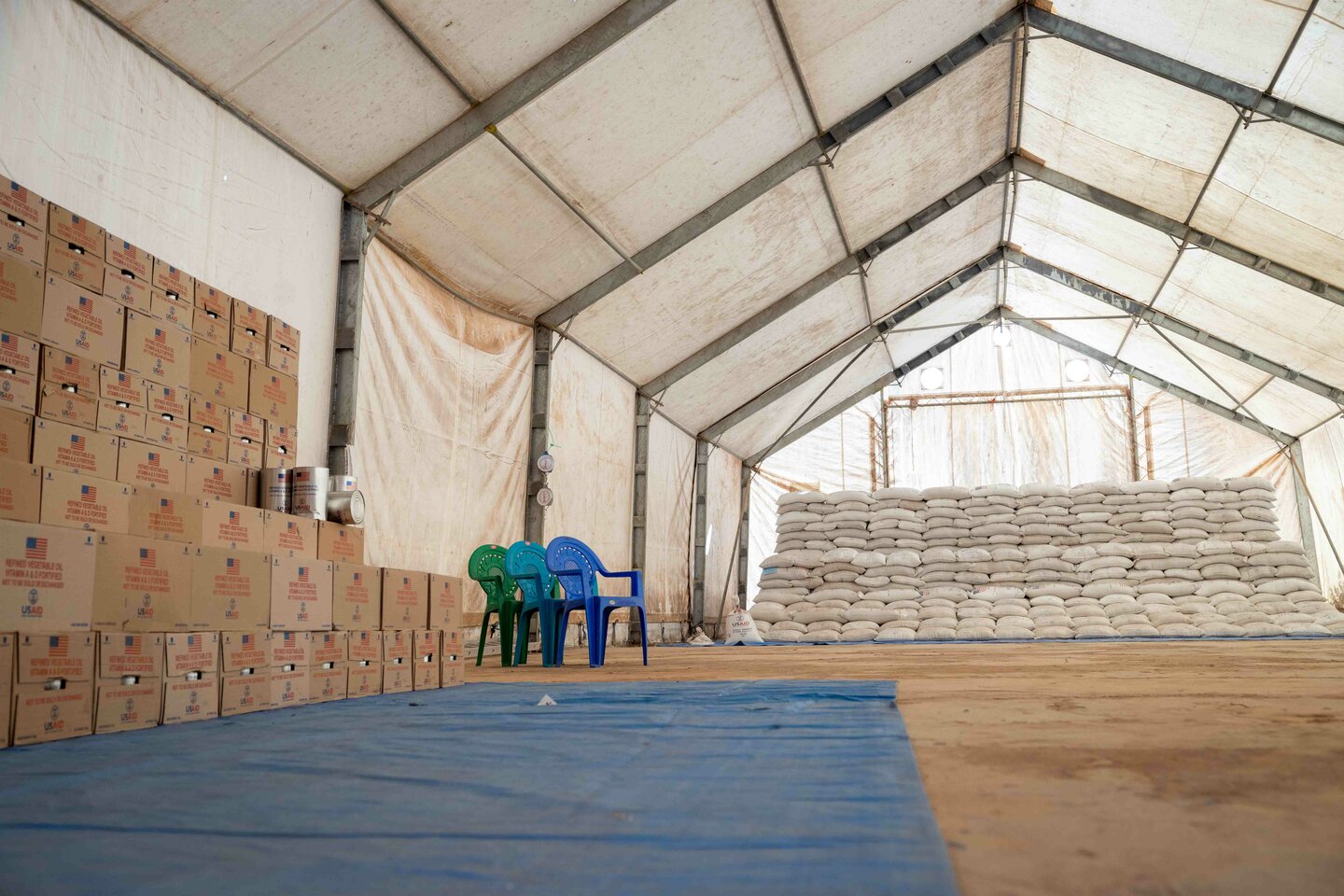
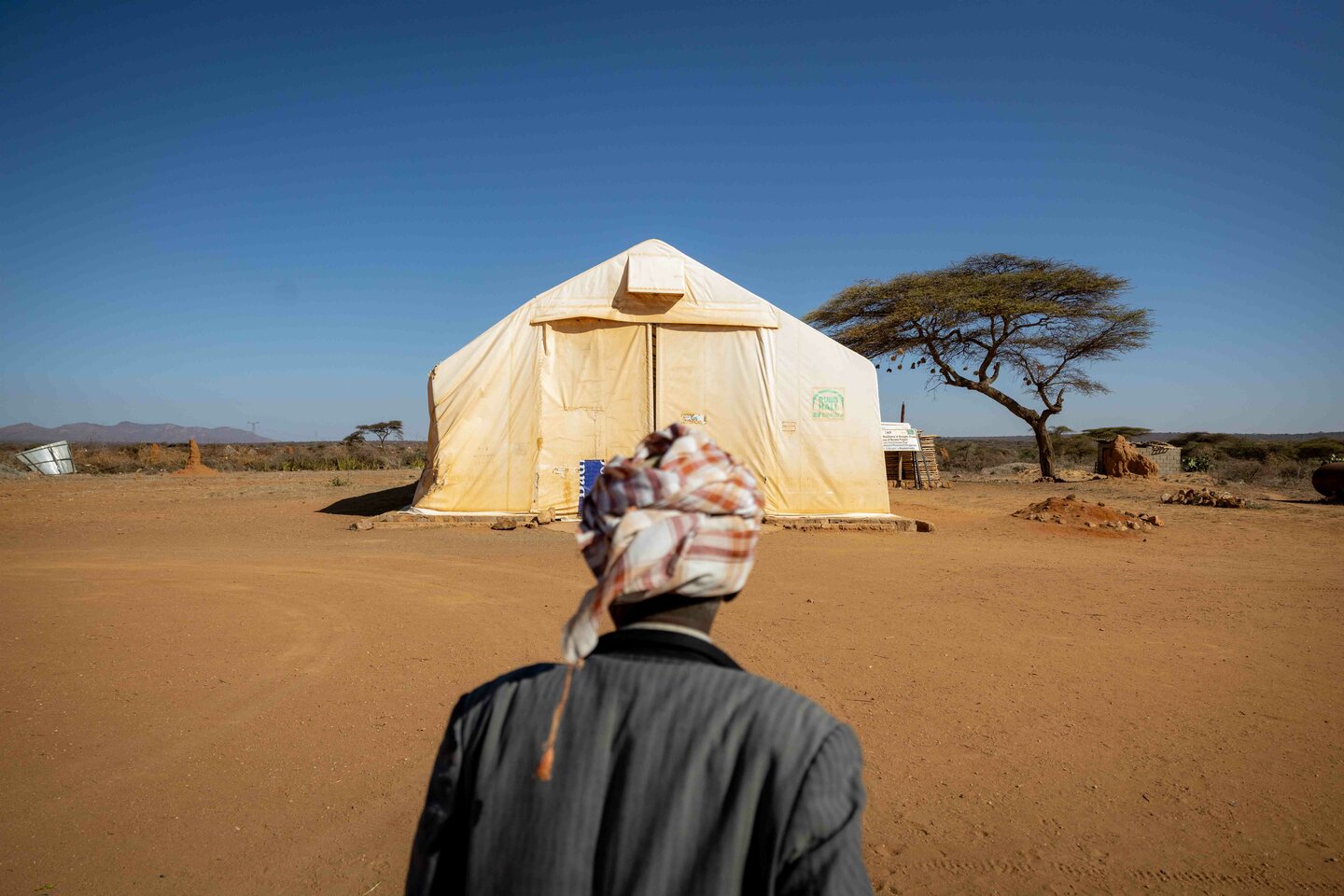
Gender-based violence in Dubluk camp
Life in the camps comes with its own set of problems – on top of the desperate situation of its inhabitants. “Gender-related violence is becoming an issue that has no response yet,” said Monica. “We have heard reports on rapes, sexual harassment and forced marriages. These issues are multiplied by the situation in the camp and the fact that most IDP here are women. This issue needs urgent attention.”
Humanitarian response organizations typically come for four to twelve weeks to distribute aid. “There is only one local organization permanently on the ground at the moment, and they focus on health and sanitation in the camp,” said Monica. “We need more awareness about gender-based violence, and we need committees in the camp so that each case can be looked at.”
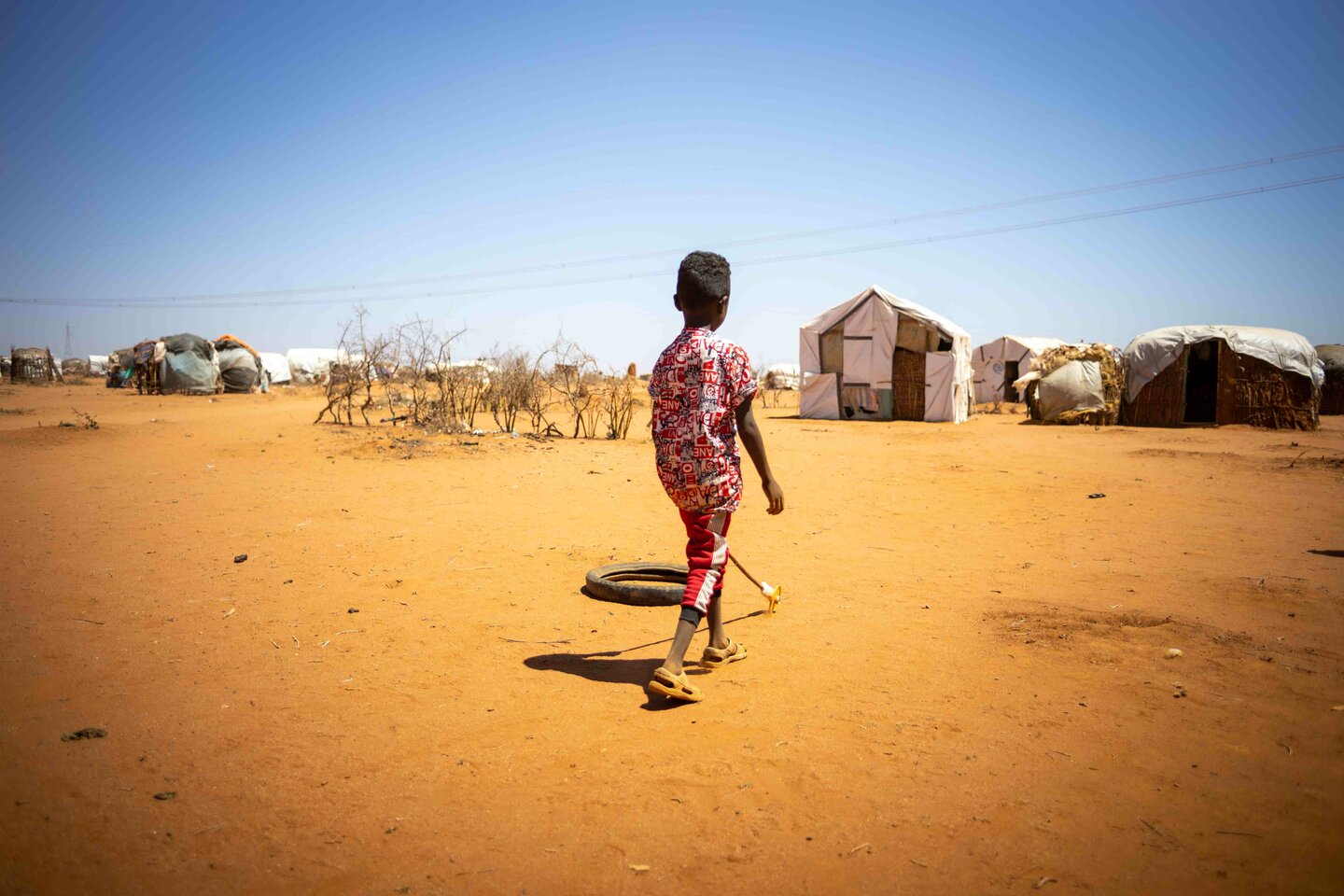
The majority of the camp inhabitants are women. Men have gone to find work, join the military, or find pastures for the remaining cattle. Dubluk’s local school has the capacity to absorb some of the older kids, but the local primary school is full. The younger students must visit one of the few schools set up in tents constructed by the International Organization of Migration. Government teachers have been sent to teach in the tents, but there are already too few teachers for the student population and the number of households that move to the camp increases by the day. There is also a high dropout rate because of the limited food assistance; the children are unable to learn on empty stomachs.

Emergency response by Helvetas
Helvetas is one of nine organizations that is responding to this forgotten crisis. Since the crisis’s onset, Helvetas Ethiopia has provided emergency response to five camps in the Borana Zone. Our activities focus on cash-based aid and livestock management, which supports herders in selling their livestock at fair prices during the drought and restocking lost animals.
“Our intervention is unique in that it focuses on female-headed households and pastoralist communities,” said Monica. “We also raised awareness of gender-based violence issues during our latest emergency response interventions. During the aid distribution, I talked to the women about abuse that is happening in the camps and solutions that are available. I encouraged them to visit the Women and Child Affairs department of the woreda. But I know this is not enough. The number of pregnancies are rising. We need to give more training and psycho-social advice.”
Helvetas also distributed cash assistance and livestock – 10 goats and sheep – to 435 women in the camp. These goats and sheep are more drought-resistant than cattle, since they consume less fodder and breed quicker. This helps support the old Borana system where community members help each other with restocking.
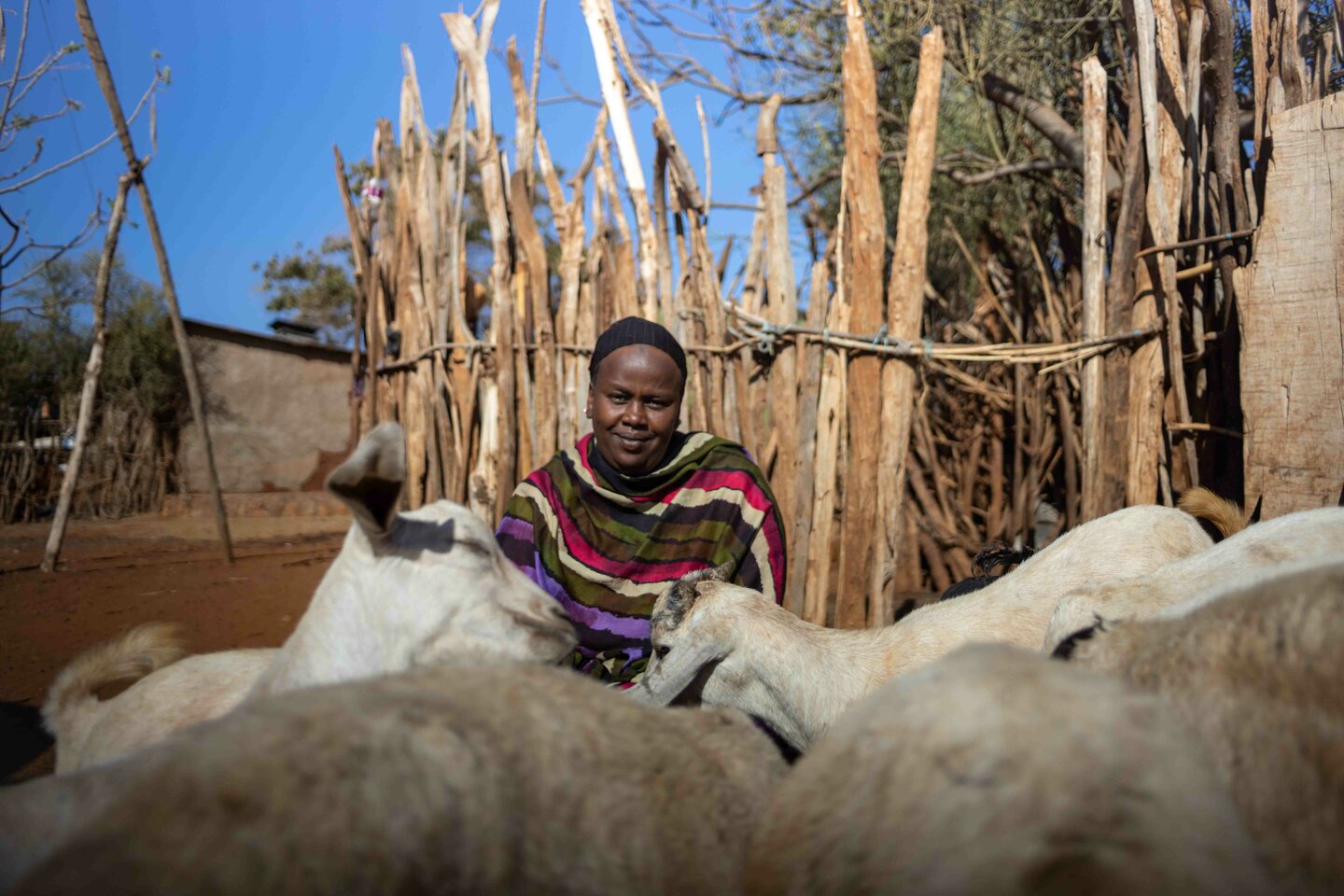
Daku Borbore, 42, says, “The livestock gives us back a part of our identity as pastoralists. Most of us brought the goats to relatives or pastures in the mountains where they can find food. We visit them once in a while and wait for the herds to grow.”
“The only downside is that since we received the goats, we have been largely excluded from other aid distributions by the camp leaders. We still get the food rations, but we are excluded from non-food aid. But all in all it is still a big win for us.”

More aid is urgently needed
There is no end in sight to this protracted crisis. A sustained scale-up of humanitarian aid is urgently needed to save lives in the region.
With a changing climate that looks likely to force more and more Borana closer to sustainable water sources and aid distribution centers, innovative thinking for long term solutions is needed.
“We need to help the Borana in their communities and home villages, not only in the IDP camps,” said Tesfaye Adamu, Helvetas’ emergency preparedness expert in the region.
“And we need to put our heads together with community members to think through how life for the Borana can continue. The government intends to start subsidizing livestock feed to save the core breeding stock and to work on emergency commercial destocking. We are also discussing the introduction of insurance for cattle loss when this emergency is over.”
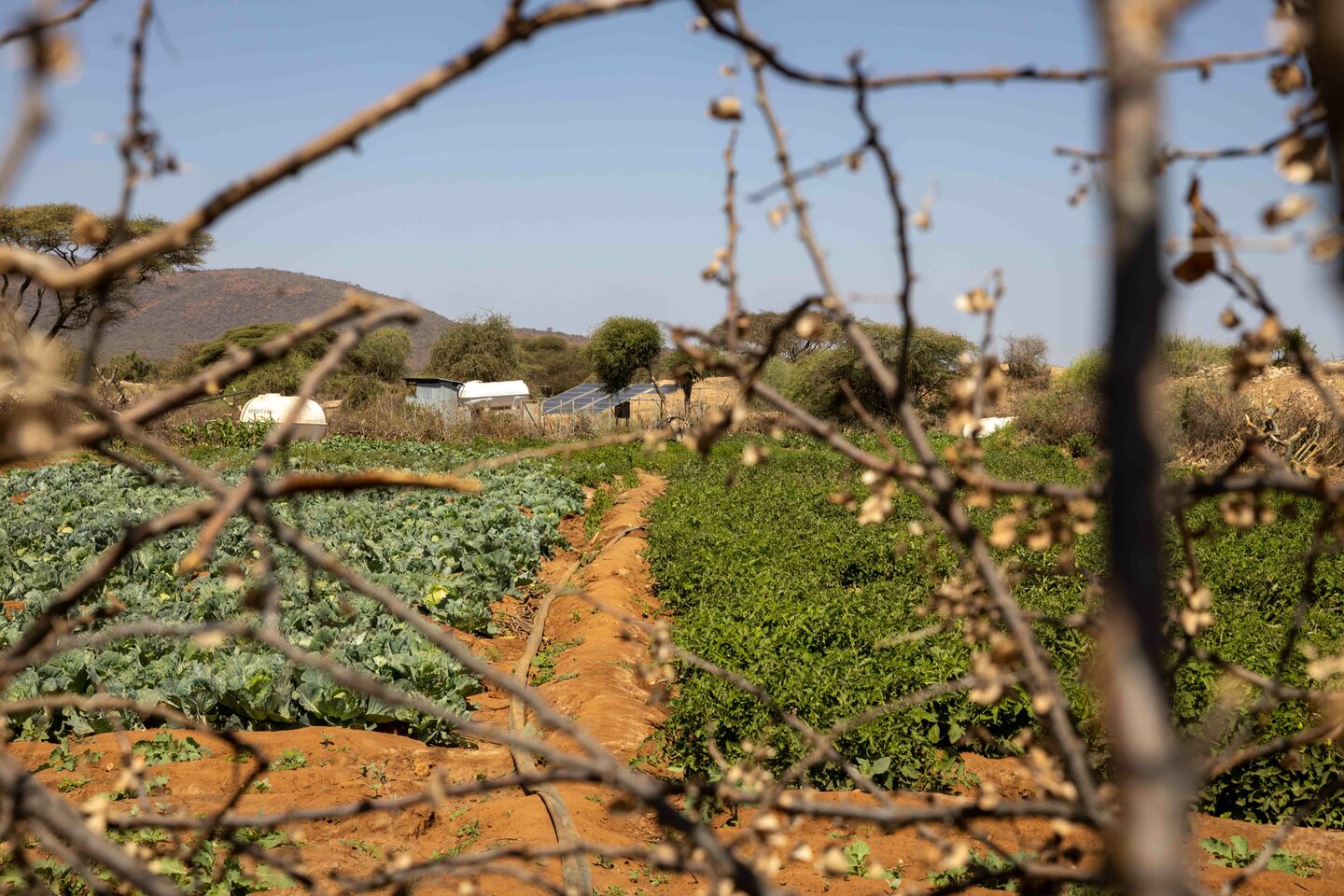
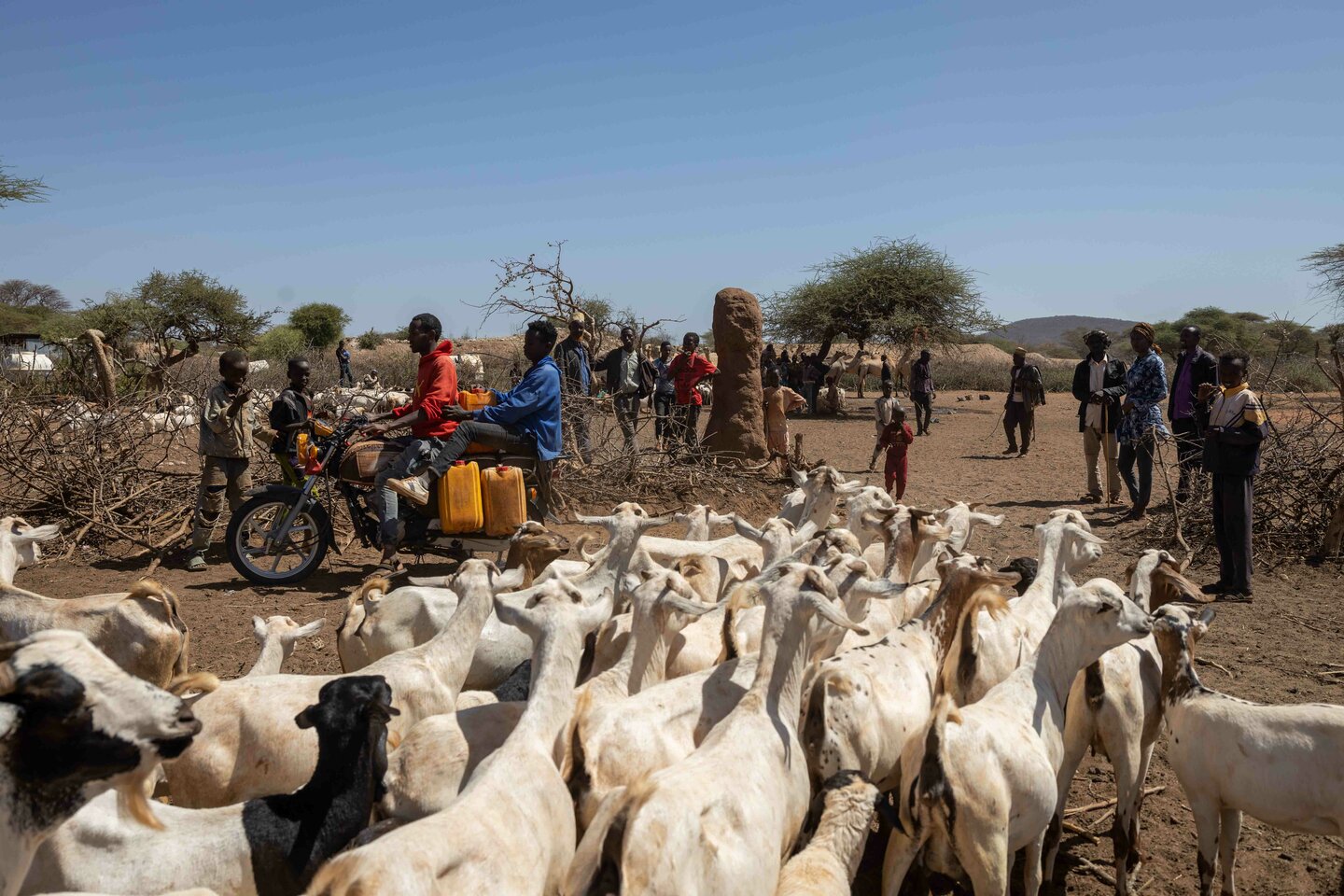
The current landscape cannot sustain the high number of cattle previously held per household. Relocation to lands further north may be the only long-term solution for the majority of the Borana people.
Around 40 kilometers away from the Dubluk camp, Loko Chachole, 26, stands next to one of the traditional deep wells in the region – one that still holds plenty of water at the moment.
About seven months ago, she moved close to the well with her six children. “I have four goats left,” said Loko. “All 27 of my cattle died, and I sold 20 goats for food.” In her kebele, the hand water pump stopped providing sufficient water. “We came here to find more water and pastures. But if we don’t see rain, we don’t know what we will do. This is our land, and we want to live and die here with our people. Our way of life is connected to this land.”
Helvetas has been present in the Borona Zone since 2017. In addition to implementing education and natural resource management projects, Helvetas has responded to the crisis since its onset thanks to funding from the Swiss Agency for Development and Cooperation, Swiss Solidarity (Glückskette) and the Medicor Foundation.


